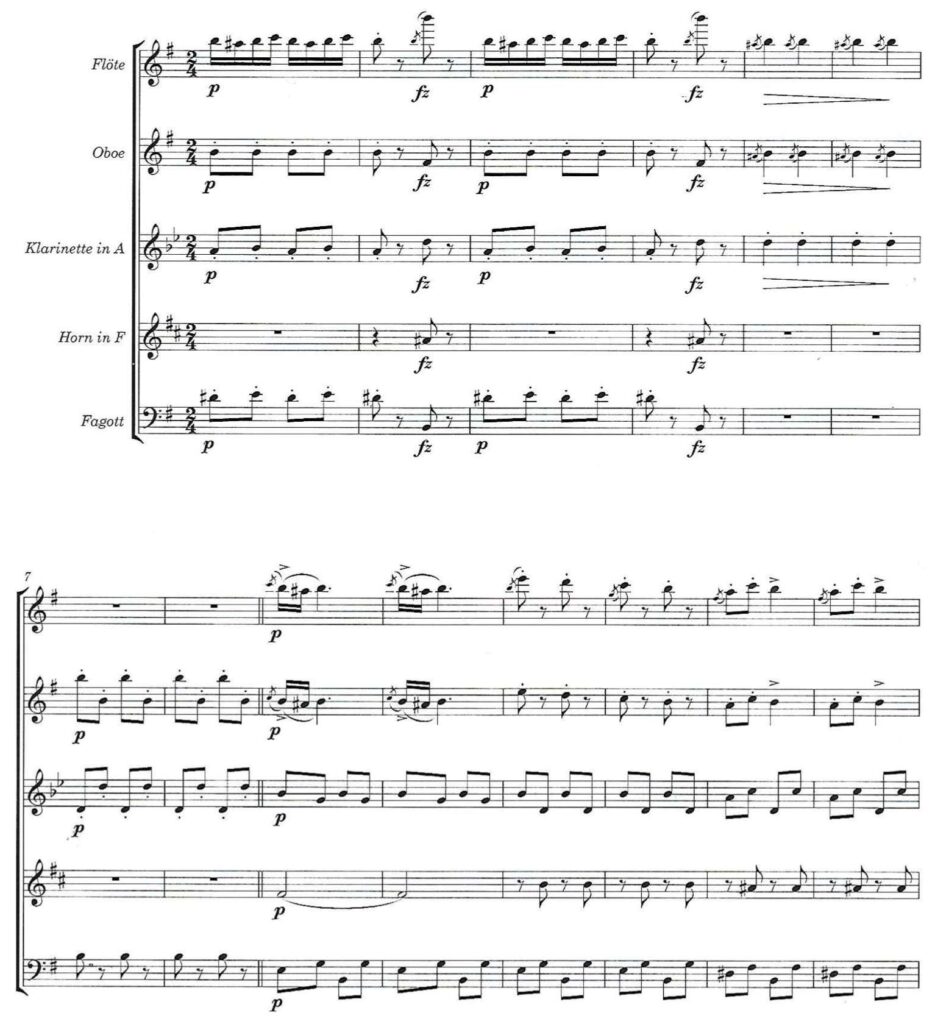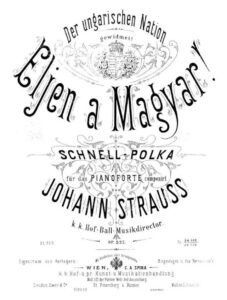Johann Strauss II (1825-1899) Éljen a Magyar, Polka op. 332 / Long live the Hungarian, fast polka

1869 wurden die Brüder Strauss eingeladen, im Festsaal des Redoutengebäudes in Pest zu wohl- tätigken Zwecken zu konzertieren. Alle führenden Repräsentanten von Pest und Ofen (Buda) hat- ten ihr Erscheinen zugesagt. Die national-ungarische Veranstaltung in Budapest ist politisch vor dem Hintergrund des im Jahr zuvor erfolgten Österreichischen-Ungarischen Ausgleichs zu sehen. Von daher handelte es sich hier, zumindest nicht offiziell, um eine Demonstration gegen Öster- reich und das Kaiserhaus. Johann Strauss präsentierte eine Schnellpolka mit dem Titel „Éljen a Magyár!“, die er den „edlen ungarischen Nation“ widmete. Zum Ausklang des Werkes verwendete er ein Zitat aus dem „Rákóczi-Marsch“ – auch am habsburgischen Kaiserhof gefiel das Werk.

In 1869 the Strauss brothers were invited to give concerts for charitable purposes in the ballroom of the Redouten building in Pest. All leading representatives of Pest and Ofen (Buda) had agreed to attend. The national-Hungarian event in Budapest should be seen politically against the back- ground of the Austro-Hungarian equalization that took place the previous year. So this was, at least not officially, a demonstration against Austria and the imperial family. Johann Strauss pre- sented a quick polka entitled “Éljen a Magyár!”, Which he dedicated to the “noble Hungarian na- tion”. To round off the work, he used a quote from the “Rákóczi March” – the work was also popular at the Habsburg imperial court.
| sound sample / Tonbeispiel | score/parts PDF download: € 15,- | add to cart / in den Warenkorb |
